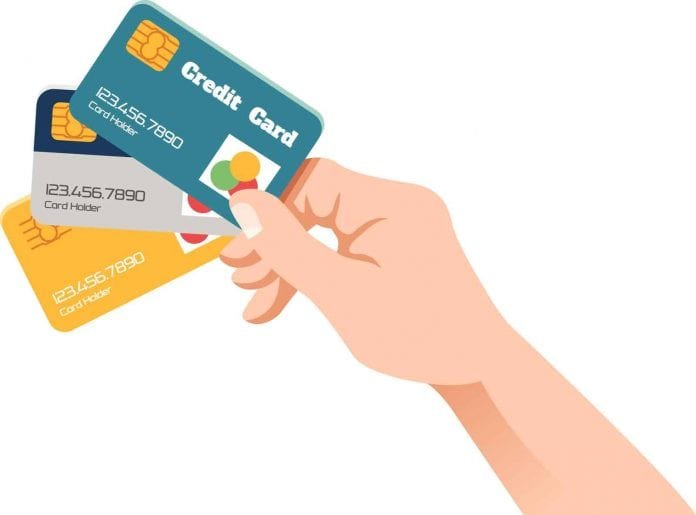Last Updated on March 12, 2024 by admin
Nowadays, it is hard to imagine life sans a debit card or credit card in our pockets. This is because of the significant shift to a cashless economy. This trend has become wider because of the demonetization initiative of 2016 in India.
Credit cards and debit cards resemble each other. Both kinds of plastic cards carry a marking of a number of 16-digits having details like a PIN (Personal Identification Number) and dates of expiry. Both cards have similar functions; they may be utilized to withdraw cash from ATMs and enable cashless transactions for off-line at the terminal for point-of-sale or for online e-commerce transactions.
However, there are fundamental differences between debit and credit cards. As a definition, credit cards offer extra credit and debit cards, implied by the name, debit the cash you spend in the account in your bank. Hence, though credit cards help you borrow money from Credit Card Company until a specific limit, the debit cards permit you for making cashless transactions through drawing of funds which are currently deposited in your bank account.
Table of Contents
Debit card
Banks issue a debit card against your savings and current accounts. It can be used to spend only the quantum of money already present in your account. While swiping the card in an ATM or using it to make payments, the money is instantly deducted from your account. This may pose a problem during emergencies in case you lack adequate balance in your account for expenditure.
Credit card
As opposed to debit cards, the credit card provides a facility to borrow funds within a credit limit to meet payments whenever needed. You must pay back the amount borrowed within a specified time, after which there is a restoration of the limit. The limit on credit depends on many factors like income, age, credit score, etc.
The card company charges higher interest on the only outstanding amount when payments are delayed. With credit cards, you may also enjoy many rewards and deals like cashbacks, discounts on movie tickets, travel bookings, online purchases, etc.
Pros of using Debit Cards
- There is no debt involved as you are making use of your own money
- Debit cards are cheaper as there is no need to pay an interest rate
- They can be used for withdrawing money from ATMs.
- The processing and approval of debit card is easier and faster
- Does not impact credit history
Cons of Debit Cards
- Keeping track of monthly transactions is tough, and so is, balancing your passbook every month
- You may have to pay a fee for withdrawing money from an ATM other than that of your bank.
- You run a much higher risk of debit card fraud.
Pros of Credit Cards
- They are highly convenient and help you carry cash indirectly wherever you go.
- Credit cards help you in building up your credit score.
- Credit cards offer many more award points and deals than other cards.
- They offer much flexibility to access cash because of high credit limits.
- Less risk of fraud because of the facility to block cards.
Cons of Credit Cards
- If you are late or default on your payments, you will be charged higher interest rates.
- Credit cards involve multiple kinds of fees.
- Missing a payment could negatively impact your credit score, and you will have to work even harder to improve it
- Even though there is a credit limit, you will be tempted to spend more and incur much debt.
Which is better?
Both debit cards and credit cards have their own pros and cons. The value of each depends on the situation:
- For spending issues
In case you have no control over your expenses, it is better to use a debit card instead of incurring debt on credit cards.
- For withdrawing cash
In the case of a debit card, you are withdrawing money that you possess. But with a credit card, the amount you withdraw is considered as a loan for which you have to pay interest. So, a debit card beats a credit card in this aspect.
Related Articles: Apply for a Personal Loan Up to 5 Lakhs to Clear Credit Card Debt
- Online shopping
Credit cards are much safer than debit cards for online transactions. If you detect fraud, you can cancel or block the card. Getting a reversal of the amount is also easier with a credit card.
- Big purchases
Credit cards are better for expensive purchases as they offer the opportunity to pay back using EMIs and thus make transactions more affordable.
- For vacations
Most credit cards are accepted everywhere, and so reduces the need to carry cash during an overseas trip.
In sum, these are some of the pros and cons with regard to credit cards and debit cards. Indians traditionally prefer debit cards over credit cards as they are averse to debt. But the modern generation is not only tech-savvy but happy to take on debt and deal more smartly with such debt.
Apart from this if you are interested to know about Team Building Activities for Finance Departments then visit our finance category.



























